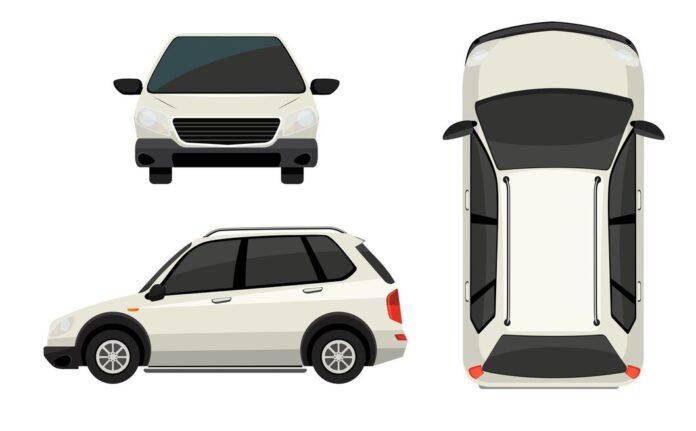Introduction to Car Length
The length of a car is a critical aspect of its design and functionality. It determines various characteristics, including performance, utility, and aesthetics. Understanding the importance of car length can provide valuable insights into the automotive industry and consumer preferences.
Importance of Car Length in Vehicle Design
Car manufacturers carefully consider the length of a vehicle during the design process. The overall length impacts aerodynamics, weight distribution, and interior space. Designers aim to balance aesthetics and practicality while determining the optimal size for a car.
Factors Influencing Car Length
Several factors influence the length of a car, including regulatory requirements, consumer preferences, and technological advancements. Government regulations often dictate maximum vehicle dimensions for safety and environmental reasons. Consumer demand for specific features, such as spacious interiors or compact designs, also influences car length.
Car Length Variations Across Vehicle Types
Sedans
Sedans typically have a moderate length, balancing passenger space and manoeuvrability. Their elongated body style allows for ample legroom in the rear seats while maintaining a sleek exterior profile.
SUVs
Sport Utility Vehicles (SUVs) vary widely in length, ranging from compact crossovers to full-size models. More extended SUVs offer greater cargo capacity and seating arrangements, catering to families and outdoor enthusiasts.
Trucks
Trucks come in various sizes, from compact pickups to heavy-duty models. The length of a car often correlates with its towing and hauling capabilities, with longer beds accommodating larger payloads.
Hatchbacks
Hatchbacks are known for their compact size and versatility. Their shorter length makes them ideal for urban driving and parking in tight spaces, while the rear hatch provides convenient access to cargo storage.
Implications of Car Length on Performance and Utility
![]()
Handling and Maneuverability
The length of a car directly affects its handling and manoeuvrability on the road. Longer vehicles may have a wider turning radius and require more parking space, especially in urban environments with limited parking spots.
Parking and Garage Space
Car length plays a crucial role in determining parking and garage space requirements. Longer vehicles may need help to fit into compact parking spaces or residential garages with size restrictions, limiting their practicality for daily use.
Interior Space and Passenger Comfort
The length of a car impacts interior space and passenger comfort. Longer wheelbases often translate to more legroom and headroom for occupants, enhancing comfort during long journeys. Additionally, the increased length allows additional storage compartments and amenities within the cabin.
Future Trends in Car Length

Compact Cars
Advancements in technology and materials may lead to the development of more compact cars without compromising interior space or safety features. Future compact cars could offer innovative design solutions to maximise utility within a smaller footprint.
Electric Vehicles
Electric vehicles (EVs) present new opportunities for reimagining car length and design. EV platforms allow for greater flexibility in vehicle layout, potentially resulting in shorter overall lengths with spacious interiors and enhanced aerodynamics.
Autonomous Vehicles
The rise of autonomous vehicles (AVs) may influence car length by prioritising passenger comfort and connectivity over traditional design constraints. AVs could feature modular interiors and configurable seating arrangements, accommodating various passenger preferences and usage scenarios.
Conclusion
The length of a car is a multifaceted aspect that impacts design, performance, and utility. Understanding the significance of car length provides valuable insights into automotive trends and consumer preferences. As technology evolves, car manufacturers will likely explore innovative solutions to optimise vehicle length for future mobility needs.
FAQs
How does car length affect fuel efficiency?
Car indirectly affects fuel efficiency by influencing vehicle weight, aerodynamics, and drivetrain efficiency. Longer cars may have higher drag coefficients and additional weight, resulting in increased fuel consumption compared to shorter, more aerodynamic models.
Are longer cars always more comfortable?
While longer cars often offer more interior space and passenger comfort, comfort levels can vary depending on factors such as suspension tuning, seat design, and cabin amenities. Some shorter cars may provide comparable comfort levels through efficient use of interior space and ergonomic design.
What are the safety implications of longer cars?
Longer cars may offer enhanced safety features, such as crumple zones and reinforced passenger compartments, which can mitigate the effects of collisions. However, longer vehicles may have more prominent blind spots and require more space to manoeuvre, potentially increasing the risk of accidents in specific scenarios.
How do car manufacturers determine the optimal length for a vehicle?
Car manufacturers consider various factors, such as regulatory requirements, market demand, and design objectives, when determining the optimal length for a vehicle. Extensive research, prototyping, and testing are conducted to ensure that the final design meets safety, performance, and aesthetic standards.
Are there any drawbacks to shorter cars?
While shorter cars offer advantages such as improved manoeuvrability and parking convenience, they may also have limitations regarding cargo capacity and interior space. Consumers should carefully consider their priorities and usage requirements when choosing between shorter and longer car models.




